
“I am here today not because I want to be. I am terrified,” Christine Blasey Ford said in the fall of 2018, introducing herself to the Senate Judiciary Committee and a television audience of millions. Early in One Way Back, the memoir Ford has written about her testimony, its origin, and its aftermath, she repeats the line. She feels that terror again, she writes. She is afraid of having her words taken out of context, of being a public figure, of being misunderstood. “Stepping back into the spotlight comes with an infinite number of things to worry about,” Ford notes, before returning to the story at hand. The moment is brief, but remarkable all the same: Rare is the writer who will confess to fearing her own book.
Memoirs like One Way Back are sometimes treated as justice by another means: books that step in where accountability has proved elusive— correcting the record, filling in the blanks, and restoring a narrative to its rightful owner. One Way Back, more than five years in the making, is partly that kind of reclamation. Ford’s story, for many Americans, began and ended on the day of her testimony: the day when she shared details of an attack at a house party in 1982—an assault committed, she alleged, by Brett Kava naugh, then a Supreme Court nominee. The memoir corrects the story by expanding it, placing the testimony in the broader context of Ford’s life and detailing what came later. And it rescues its author, in the process, from the confines of iconography. Ford the narrator is quirky and insightful and prone to interrupting herself with long digressions (into psychological theories, the radness of Metallica, the mechanics of surfing, the ecosystemic importance of kelp forests). She lets her idiosyncrasy loose on the page. But Ford knows better than most the toll that telling one’s story can take.
This story is from the May 2024 edition of The Atlantic.
Start your 7-day Magzter GOLD free trial to access thousands of curated premium stories, and 9,000+ magazines and newspapers.
Already a subscriber ? Sign In
This story is from the May 2024 edition of The Atlantic.
Start your 7-day Magzter GOLD free trial to access thousands of curated premium stories, and 9,000+ magazines and newspapers.
Already a subscriber? Sign In
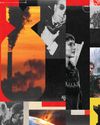
Apocalypse, Constantly
Humans love to imagine their own demise.

A Palestinian American Sex and the City
Betty Shamieh's debut novel is a rebellious rom-com.
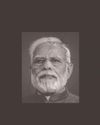
Modi's Failure
Why India is losing faith in its strongman leader
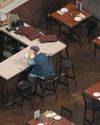
The Anti-Social Century
Americans are now spending more time alone than ever. It's changing our personalities, our politics, and even our relationship to reality.
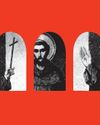
The Wild Charity of Saint Francis
The guide we need, now that kindness is countercultural
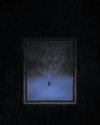
Where Han Kang's Nightmares Come From
In her novels, the South Korean Nobel laureate returns again and again to her countrys bloody past.
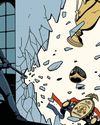
TROPHY HUNTERS
A GROUP OF CHILDHOOD FRIENDS PULLED OFF A STRING OF THE MOST AUDACIOUS SPORTS-MEMORABILIA HEISTS IN AMERICAN HISTORY. THEN THEY DID SOMETHING REALLY CRAZY.

THE NEW RASPUTINS
Anti-science mysticism is enabling autocracy around the globe.
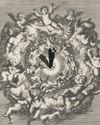
ARMY OF GOD
AMERICAN CHRISTIANS ARE EMBRACING A CHARISMATIC MOVEMENT KNOWN AS THE NEW APOSTOLIC REFORMATION, WHICH SEEKS TO DESTROY THE SECULAR STATE. Now THEIR WAR BEGINS.

WHAT NOT TO WEAR
The false promise of seasonal-color analysis